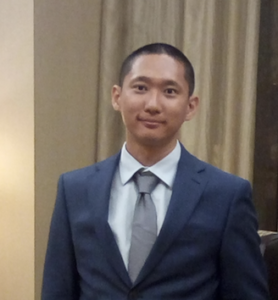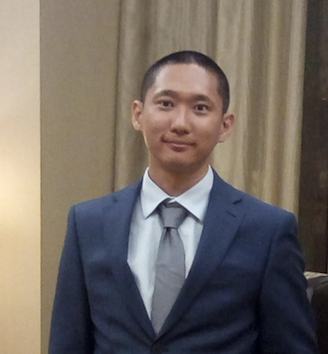This fall LITS welcomes five fabulous 2018-2019 Emory Libraries/Emory Center for Digital Scholarship (ECDS) Fellows.  We hope this blog series of interviews will help you get to know them better. Funded by the Laney Graduate School, Emory Libraries and Emory Center for Digital Scholarship (ECDS) award fellowships to advanced graduate students expecting to complete their dissertations by the end of the academic year. Fellows are placed in a department related to their subject specialization or interest, culminating in a formal presentation in the spring. Mark your calendar for April 10th from 2pm to 3:30pm in the Jones Room.
We hope this blog series of interviews will help you get to know them better. Funded by the Laney Graduate School, Emory Libraries and Emory Center for Digital Scholarship (ECDS) award fellowships to advanced graduate students expecting to complete their dissertations by the end of the academic year. Fellows are placed in a department related to their subject specialization or interest, culminating in a formal presentation in the spring. Mark your calendar for April 10th from 2pm to 3:30pm in the Jones Room.
Welcome, Shensheng Wang, who is working in the Instruction and Engagement team of the Research, Engagement, and Scholarly Communications Division.
- Tell us a little bit about yourself. Where are you from? What’s your favorite book?
Originally from Tianjin, China, I came to the U.S. right after completing my B.S. in psychology at Nankai University, a renowned Chinese institution located in my hometown. Six years have passed; I still vividly recall how excited I was when I first arrived at Atlanta. I knew that I was about to embark on a new adventure in life and that Emory/Atlanta would be a perfect starting point.
My favorite book is How the Steel Was Tempered by Nikolai Ostrovsky. The protagonist Pavel Korchagin gives me courage and inspires me to live a meaningful life.
There are many things I love about Emory. Among them, the libraries, the WoodPEC, and the Schwartz Center are my favorites.
- What are you researching for your dissertation?
When human replicas (e.g., dolls, robots, and wax figures) appear almost, but not quite, human, they may elicit uncanny feelings (i.e., feelings of unease, eeriness and revulsion) in observers. My dissertation examines this phenomenon by focusing on how people perceive different types of faces — faces of humans as opposed to those of human replicas.
Research has shown that people perceive faces in two steps: they first rapidly detect a coarse face form regardless of whether the face is human or not; they then discern the face’s animacy, distinguishing between human and nonhuman faces depending on whether the observers perceive a “mind” behind the face. My research shows that the uncanny feelings toward robots with humanlike faces may be attributable to humans’ sensitivity to face animacy. Furthermore, our perception of face animacy may share etiological roots with our tendencies to perceive outgroup members (defined by, for example, gender, race/ethnicity, or religious belief) as less human than we are.
- What interested you about this Fellowship?
I was interested in Emory Libraries/ECDS Fellowship, primarily because it offers me opportunities to apply knowledge and skills I have learned over the years to benefit other students. This fellowship also allows me to hone my writing, verbal communication, organizational and leadership skills.
- What will you be working on this year for your Fellowship?
As an Instruction and Engagement graduate fellow, I am responsible for organizing the dissertation boot camps in the Woodruff Library and tutoring and running a staff group at the Emory Writing Center. I also help out with outreach and education programming.
Related Links:
2018-2019 Fellows
https://scholarblogs.emory.edu/woodruff/fyi/litsgradfellowships2018
2017-2018 Fellows
Meet 2017-18 Woodruff Fellow – Jonathan Coulis
Meet 2017-2018 Woodruff Fellow – Matt Graci

